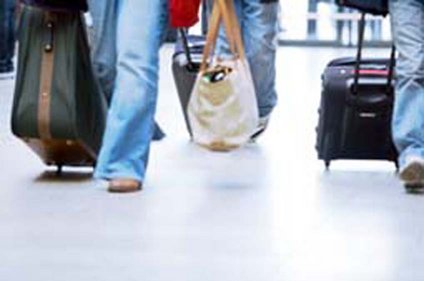
Whether you are traveling to London for the 2012 Summer Olympics or you’re jetting off on an Italian holiday while the kids are out of school, it’s wise to do some research first. After all, it doesn’t pay to perpetuate the “dumb American” stereotype when you are traveling overseas.
While smartphones are helpful and very convenient, they don’t provide you with the same organized information featured in guidebooks. Many people shy away from purchasing the highly informative books because they feel they can obtain the same information via the Internet. On the contrary, guidebooks are priceless, especially if you are clueless about the region you are visiting and don’t speak the language. For example, most European guidebooks warn about the excessive pick-pocketing that takes place on public transportation and at crowded local attractions. To avoid becoming a crime victim, it’s a good idea to wear a money belt when traveling around Europe. The nylon, zippered pouch fastens around your waist and can be hidden under your pants or shirt. Another universal travel tip is to wash your hands on a regular basis. If a public restroom is out of soap, use portable hand sanitizer that can be tucked into your purse or pocket.
While most Americans don’t take foreign language courses prior to leaving on a trip to France or Germany, it doesn’t hurt to learn at least a few basic local phrases so you can communicate with the locals. Also, study universal symbols so you can stay safe when traveling overseas. For example, an image of a glass with a red “X” over it, or skull and crossbones means: “Don’t drink the water.” Generally, the water throughout Europe is safe, though if you are suspicious, then stick with bottled water and request that ice cubes not be added to beverages, such as juice or soda.
Related Articles:
Journey to the Center of… Your Intestines
Want Tall Children? Marry A Dutch Man (Or Woman)
Affordable All-Inclusive Packages to Europe

